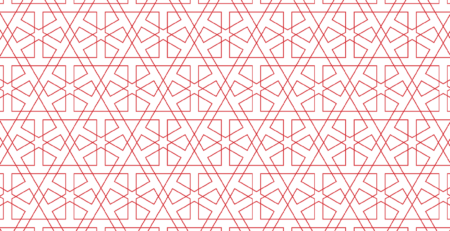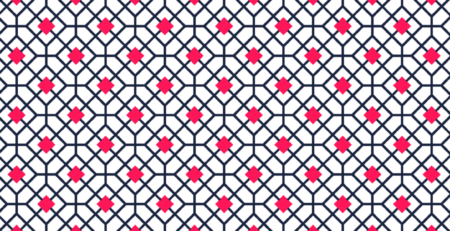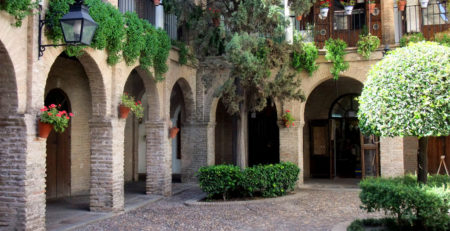The Cordoba Update 10.-23.03.2015

1) MOROCCO
» 18.03.2015: A Moroccan-UAE Agreement to Counter Terrorism
Morocco represented by King Mohammed VI, and the UAE represented by Abu Dhabi’s Crown Prince, Mohammed Bin Zayed Al-Nahyan, signed last Tuesday around 30 cooperation agreements, notably in the counter terrorism area. Both countries are engaged in the international coalition led by the USA against ISIS.
Link for more information:
http://www.aljazeera.net/news/arabic/2015/3/17/
» 23.03.2015: Escalation of Antagonistic Statements and Remarks among Moderate Islamic Current and Shiite Current
The escalation of antagonistic statements and remarks between the Moderate Islamic Current and the Shiite Current in Morocco started since the announcement of permission given to Shiite activists to organise a seminar in the city of Tangiers last February. The escalation between Al-Tawhid Wa Al-Islah Movement – the preaching branch of Al-Adala Wa Al-Tanmiya Political Party, and Al-Khat Al-Rissali – which frames the Moroccan Shiites, followed the announcement of a seminar organized Saturday in Rabat on “Shiism: Phenomenon, Warnings, Prevention”.
Al-Khat Al-Rissali warned about the risks of such seminars which spread a culture of hate and discrimination, and said that they will organise protests and complain before the international organisations.
A spokesman within the Al-Tawhid Wa Al-Islah Movement declared that the selection of “Shiism” as a theme for the seminar “doesn’t consider a specific party”, in reference to the Moroccan Shiites. He added “Our goal is to draw attention to the need to immunize the community from external intrusions”. He explained that “The seminar which was organised represented an ordinary scientific seminar that put on the table for discussion and analysis the question of Shiism as a doctrinal orientation, without intending to attack any particular orientation”.
Link for more information:
http://www.alquds.co.uk/?p=315184
2) LIBYA
» 23.03.2015: Leon’s Race against the Clock in Libya
UNSMIL’s Bernardino Leon has been doubling efforts to reach an agreement at the negotiating table of stakeholders in the Libyan conflict. With a week left before his mandate comes to an end late this month Leon has engaged key political parties, civil society and influential figures in a dialogue track in Algiers, which concluded with an eleven point agreement that calls in essence for a peaceful political solution in Libya. In Morocco, Leon has been struggling to sustain a fresh round of political dialogue between Tripoli’s GNC and Tobruk’s HoR. On Friday 20 March, the GNC’s Libya Dawn forces countered the offensive launched by the pro-Haftar Zintan Qaaqaa and Sawaiq militia on Azizia, 45 km south of Tripoli. In the first hours of the offensive in the evening of Thursday 19 March, Tobruk political figures went on TV to declare a quick victory and scrap the UN dialogue. Those statements on the eve of the dialogue in Skhirat, Morocco, put Leon in an awkward position that compelled him to mention Abdulah Thenni and Mamoud Jibril as obstacles to a political solution in Libya that could come under UNSCR 2174 sanctions. As the battles rage on different fronts in the east, the Gulf of Sirte and Benghazi, the dialogue in Morocco has very little chance of delivering an agreement. While the GNC agrees to a national unity government to govern the remainder of the transition, they consider Haftar as a deal breaker who should not have any role in the future of Libya. The HoR’s appointment of Haftar as general commander of the armed forces in recent weeks is understood in Tripoli as a clear signal that Tobruk is not willing to find a political solution. Tripoli believes that the nomination of Haftar was imposed on the HoR by Tobruk’s regional backers, which explains the undecided and hesitant posture of the HoR delegation in Morocco. In order to salvage the dialogue process Leon flew early this week to Tobruk meet Salah Aguila, president of the HoR but Leon was forced to fly back without even leaving the airport. With ISIS in control of Sirte where a battle looms between the Libya Dawn forces and armed groups operating under the ISIS banner, Libya seems heading towards further fragmentation.
Links for more information:
https://youtu.be/SDw_nI6_sOg?list=UUn23EfIDy1y3v_YM9kjyi7A
http://unsmil.unmissions.org/Default.aspx?tabid=3543&ctl=Details&mid=6187&ItemID=2011251&language=en-US
http://www.independent.co.uk/news/world/middle-east/isis-in-libya-muammar-gaddafis-soldiers-are-back-in-the-country-and-fighting-under-the-black-flag
http://www.libyaherald.com/2015/03/23/final-battle-against-is-expected-in-sirte-soon/#axzz3VIZXt9qc
http://unsmil.unmissions.org/Default.aspx?tabid=3543&ctl=Details&mid=6187&ItemID=201299
3) TUNISIA
» 23.03.2015: “Resist the Counter-Tourism Response and Consolidated Ennahdha,” experts say
The tragedy at the Bardo National Museum that left over 20 dead on the eve of Tunisia’s celebration of its Independence Day came at a time when the frustration of Tunisians with the poor performance of the political elite in power and the opposition has become unbearable. The crisis within Nidaa Tounes that intensified after the election of Baji Caid Essebsi (BCE) as president worsened further when a group of around 60 MPs and as many of the party’s executive committee, amongst others, rebelled against the party’s leadership as the power struggle between leftist and former RCD party loyalists came to a head. The immediate effect of the Bardo bloodshed was the election of the party’s political bureau on Sunday 19 March. The party’s crisis is, however, not over as there are rumours that Hafid Essebsi, son of president BCE, would be leaving Nidaa Tounes to form his own party. The Bardo attack would understandably deal a significant blow to the country’s fragile tourism-based economy. But beyond the political and economic immediate and mid-term consequences of the Bardo attack, keen observers of the region’s affairs a fear far reaching impact on the Tunisian democratisation model. The attack would bolster the counter-terrorism approach as the exclusive strategy to counter religious extremism. This security approach would only play into the hands of violent groups who would profit from the restrictions of liberties. Tunisian expert Larbi Saddik fears that the aftermath of the attack might undermine moderate Islamist political parties such as Ennahdha that “seek a two-fold synthesis: 1) between a moderate brand of Islam that tolerates ballots, gender equality, rule of law, pluralism, accountable government, and coexistence with the West; and 2) a form of democracy that is inclusive of all faiths and freedom of worship.” That fear is shared by George Geofee of Cambridge University, who sees in Ennahdha an essential player in the transition in Tunisia given the structural fragility of Nidaa Tounes dominating the national assembly now.
Links for more information:
http://www.aljazeera.com/indepth/opinion/2015/03/museum-attack-tunisia-150319055014149.html
http://www.lapresse.tn/23032015/97593/la-guerre-de-tous-les-tunisiens.html
http://www.leaders.com.tn/article/16621-les-premieres-decisions-apres-l-attaque-du-bardo-le-politique-le-securitaire-et-la-communication
http://www.alaraby.co.uk/english/comment/2015/3/21/ennahdha-bids-for-the-long-term
http://www.lapresse.tn/24032015/97637/composition-du-bureau-politique.html
4) EGYPTE
» 23.03.2015 : Shaima Al-Sabbagh “morte parce que trop maigre”
La militante de gauche Shaima Al-Sabbagh, blessée mortellement par un tir de police alors qu’elle posait des fleurs sur la place Tahrir le 24 janvier, lors d’une manifestation la veille du quatrième anniversaire de la chute de Mubarak, est décédée du fait qu’elle était trop mince, a conclu le rapport du médecin légiste. La blessure par balle n’aurait pas été létale selon le rapport, mais la jeune fille n’aurait pas survécu à cause de sa constitution trop mince.
Alors que le renvoi du policier qui a tiré sur la jeune fille à un tribunal constituait le premier cas de jugement d’un policier pour avoir tué un manifestant depuis la destitution de Mohammed Morsi en 2013, il est à craindre que ce rapport médical prépare à sa disculpation.
Lien(s) pour plus d’information :
http://www.alaraby.co.uk/english/news/2015/3/23/egyptian-coroner-shaimaa-al-sabbagh-died-because-she-was-slim
http://www.courrierinternational.com/article/egypte-la-militante-shaima-al-sabbagh-morte-parce-que-trop-maigre
http://www.aljazeera.com/news/2015/03/egypt-prosecutor-blames-policeman-activist-death-150317103008154.html
http://www.independent.co.uk/news/world/africa/protester-shaimaa-sebbaghs-death-by-police-shots-blamed-on-her-thin-skin-over-bone-body-10128033.html
» 23.03.2015 : Accord entre l’Egypte, le Soudan et l’Ethiopie sur la construction du barrage Renaissance
L’Egypte a signé avec le Soudan et l’Ethiopie un accord préliminaire en vue de la construction de ce qui sera le plus grand barrage d’Afrique, le barrage Renaissance. L’Egypte s’était opposée à ce projet craignant qu’il n’entrave au flux du Nil en Egypte, sa principale source d’eau. Alors que le parlement éthiopien avait ratifié en 2013 un traité qui remplaçait l’accord de la période coloniale qui garantissait les plus grosses parts de l’eau du Nil à l’Egypte et au Soudan, le président Morsi alors avait menacé qu’il ne voulait pas la guerre avec l’Ethiopie mais qu’il ne permettrait pas à ce pays de couper l’Egypte de ses ressources en eau.
Lien(s) pour plus d’information :
http://www.aljazeera.com/news/2015/03/egypt-ethiopia-sudan-sign-accord-nile-dam-150323193458534.html
http://www.aljazeera.com/news/2015/03/egypt-ethiopia-sudan-sign-accord-nile-dam-150323193458534.html
http://www.bbc.com/news/world-africa-32016763
http://www.alaraby.co.uk/english/news/2015/3/23/sudan-egypt-and-ethiopia-sign-dam-accord
https://www.middleeastmonitor.com/news/africa/17657-al-sisi-criticised-for-waiving-egypts-right-over-nile-water
» 13.03.2015 : L’Egypte du futur : Conférence pour le développement économique de l’Egypte
Le 13 et 14 mars s’est tenue la Conférence pour le développement économique de l’Egypte à Charm el-Cheikh. L’organisation de cet événement, qui devait réunir des délégations de 90 pays et plus de 25 organisations régionales et internationales, dans cette ville balnéaire du sud de la Péninsule du Sinaï était un défi sécuritaire et son bon déroulement a permis au gouvernement égyptien d’ajouter une perspective antiterroriste à la promotion de sa réforme économique et à l’encouragement aux futurs investissements. La sécurité ambiante qui a entouré le déroulement de l’événement a soulevé plusieurs questions, notamment sur le rôle des bédouins du sud de la péninsule et sur les conditions de leur coopération avec les forces de sécurité, comme elle a également alimenté les théories de complot voyant le gouvernement collaborer avec certains groupes armés.
Du point de vue économique et social, les réformes économiques mises en œuvre par le gouvernement manquent à proposer des solutions aux véritables problèmes sociaux affectant la population, notamment la pauvreté. Entre autres, la corruption qui gangrène le pays n’est pas adressée. Au contraire, des lois récentes avantageraient encore davantage ces pratiques.
Lien(s) pour plus d’information :
https://foreignpolicy.com/2015/03/12/nothing-new-on-the-nile/
http://almesryoon.com/index.php?option=com_content&view=article&id=691489
http://www.al-monitor.com/pulse/originals/2015/03/egypt-economy-conference-sinai-bedouin-security
http://almesryoon.com/
5) YEMEN
» 23.03.2015: Yemen on the edge of a new civil war
Events in Yemen have accelerated and violence has escalated since President Hadi declared on March 7 that Aden was the new capital of Yemen. Houthis had taken over the elected government headed by Hadi in February 2015 and appointed Mohammed Ali al-Houthi, a cousin of the group’s leader, as the new president. The GCC countries have since lined up to support Hadi and have moved their embassies to Aden to back Hadi against the group. Pilots working alongside the Houthis and linked to the previous President Ali Abdullah Saleh bombed the Presidential Palace in Aden last Thursday, with Hadi escaping unhurt from the attack. Southern Movement leader Abdullah Naji compared Houthi aggression to the 1994 civil war:”Northern forces won the war in 1994 because they had supporters from the south, but now the situation is different. Southerners will not allow the Houthis to rule the south,” he said. Nearly a day after Hadi’s forces defeated security unit which had defected in Aden on March 19, al-Qaeda fighters briefly captured the city of Huta in Lahj province, which is only 30 km from Aden. After executing more than 25 Yemeni government soldiers, the fighters left. The mounting unrest also included suicide bombings at two mosques in Sanaa last Friday, claimed by the Islamic State, that killed 142 people. The US evacuated its remaining personnel on Saturday and the Security Council condemned “unilateral actions” taken by Houthis and reaffirmed its support for Hadi. After the internationally recognised Yemeni government appealed to the Gulf Cooperation Council (GCC) for military assistance, Prince Saud Al Faisal, Saudi Arabia’s foreign minister, said that his country would “take necessary measures if needed” to protect Yemen’s sovereignty The Houthis have continued to seize more parts of the country and on Saturday took control of parts of the strategic city of Taiz, which lies around 180km north of Aden. A day after warning the UN Security Council that Yemen was on the brink of civil war, Jamal Benomar announced on Monday that talks between the Yemeni parties would take place in the Qatari capital, and that any agreement reached would be signed in Riyadh. A spillover effect of the conflict is feared with the mobilization of tribes against the Houthis and the recruitment of young people by the tribes but also by IS and AQAP.
Links for more information:
http://www.theguardian.com/world/2015/mar/22/yemen-sunnis-al-qaida-isis-islamic-state-shia-houthis-sanaa
http://www.aljazeera.com/indepth/opinion/2014/09/saudi-arabia-iran-great-game-ye-201492984846324440.html
6) SAHEL
Mali:
» 23.03.2015: The Inter-Mali Dialogue in Algiers hits a stumbling Block in Kidal
Following the conclusion of the inter-Malian political dialogue in Algiers on 25 March a draft of the peace and reconciliation agreement was unilaterally signed by the Malian government in Algiers on 1 March. While three Azawad armed groups signed the agreement (CPA, MAA, CMFRN), three other key movements (MNLA, MAA-dissident, HCUA) did not, pending a general popular consultation in Kidal. On 15 March, the Coordination of Azawad Movements (CMA) announced that in the light of the consultations that took place on 12-15 March in Kidal the CMA thinks that the draft Algiers agreement “does not take into consideration the essential elements of the legitimate aspirations of the Azawad populations.” The CMA reiterated its engagement in the Algiers dialogue process when a delegation of the UN, the EU, and Algerian representatives met with the CMA in Kidal last Wednesday. The draft agreement proposes the forming of elected regional assemblies with larger prerogatives within 18 months, as well as an increased representation of the north in the national institutions. Furthermore, the Malian government would establish a mechanism for the transfer of 30% of the budget to local authorities, with an emphasis on the north, starting from 2018. A number of transitional justice, reconciliation, and disarmament and reintegration measures were included in the draft agreement.
Links for more information:
http://mnlamov.net/actualites/421-communique-de-presse-la-cma
http://www.siwel.info/m/Coordination-des-mouvements-de-l-Azawad
http://www.aps.dz/algerie/20055
http://www.aps.dz/monde/19768
http://mnlamov.net/actualites/419
Tchad :
» 10.03.2015 Le verdict du procès des dirigeants de la DDS sera rendu le 25 mars
L’ancien président tchadien, Hissène Habré, a été inculpé et mis en détention préventive, le 3 juillet 2013, pour crimes de guerre, crimes contre l’humanité et torture par les juges d’un tribunal spécial, les Chambres africaines extraordinaires, siégeant à Dakar où il vit depuis près de vingt-quatre ans. Ses huit ans au pouvoir (1982-1990) ont été marqués par plus de 40 000 exécutions sommaires et disparitions forcées et près de 200 000 personnes ont été victimes de tortures menées par une police secrète tortionnaire, la Direction de la Documentation et de la Sécurité (DDS). Une vingtaine de chefs de cette police politique de Habré sont jugés, depuis deux mois, au Tchad pour des chefs d’accusation d’assassinats, tortures, séquestrations, détentions arbitraires, coups et blessures volontaires, cours et blessures mortels et autres actes de barbarie. Le verdict, dans cette procédure interne, est fixé au 25 mars prochain.
Les ministres de l’intérieur et hauts responsables du Groupe 5 du Sahel (G5) : Mauritanie, Mali, Burkina Faso, Niger et Tchad, plus les représentants de la France et de l’Union Européenne (UE), se sont retrouvés mardi 11 mars à Nouakchott pour une réunion de concertation de 3 jours. Cette rencontre vise à travailler sur « la mise en œuvre d’un mécanisme collectif de coopération sécuritaire sous-régionale » conformément aux recommandations d’une rencontre précédente tenue en mai 2014 dans la capitale mauritanienne en présence du Sénégal et de la France. L’objectif des responsables sécuritaires et au-delà des Etats est de mettre en place un organe siégeant à Nouakchott doté de moyens permettant « une mutualisation des efforts dans le domaine des renseignements en vue d’une lutte efficace contre le terrorisme et le crime transnational ».
Liens pour plus d’information :
http://www.lemonde.fr/idees/article/2015/03/12/les-occidentaux-doivent-s-attendre-a-de-nouvelles-guerres-en-afrique_4592432_3232.html
http://www.tchadactuel.com/?p=12183
Nigeria :
» 23.03.2015: Four Days before Presidential Elections scheduled on 28th March 2015
Four days before Nigeria’s presidential elections, 82% of voter cards were distributed, according to statistics provided by the Independent National Electoral Commission (INEC). Observers consider that the decision taken by the government to postpone the vote due on 14 February has had both positive and negative impacts. In fact, the extra preparation time enabled the INEC to deliver more permanent voter cards. But in the same time, the delay allowed to President Goodluck Jonathan’s well-funded ruling People’s Democratic Party to campaign more vigorously, while the opposition All Progressives Congress led by Presidential candidate Muhammadu Buhari appeared largely out of money.
Links for more information:
http://www.jeuneafrique.com/Article/ARTJAWEB20150323122947/pr-sidentielle-nigeria-2015
http://blog.crisisgroup.org/africa/2015/03/24/managing-nigerias-election-tensions/
The views and perspectives contained in the Weekly Update are from individual contributors and external sources, and do not necessarily reflect the opinions or position of the Cordoba Foundation of Geneva. The links are neither intended as an endorsement of particular publications nor the only source for the updates, but to connect to information in the public domain, for those interested in background or further details.











